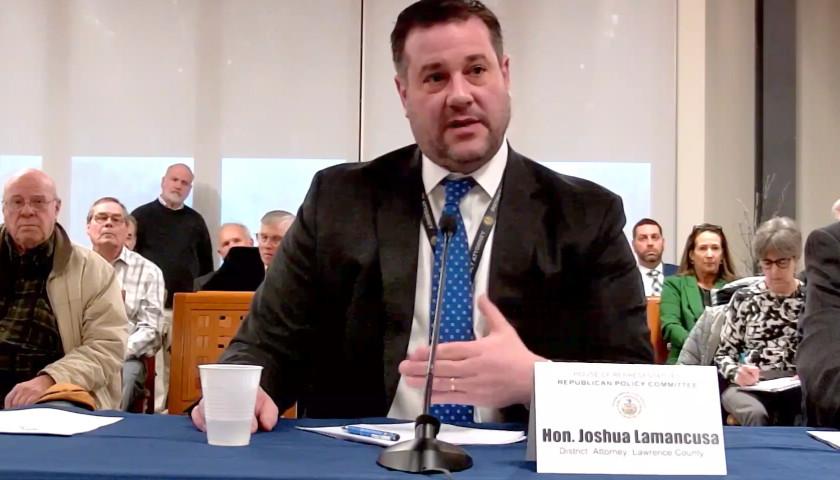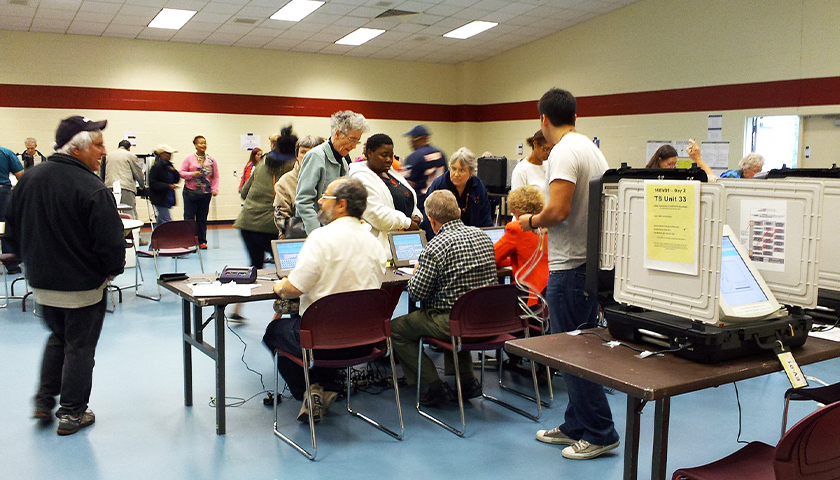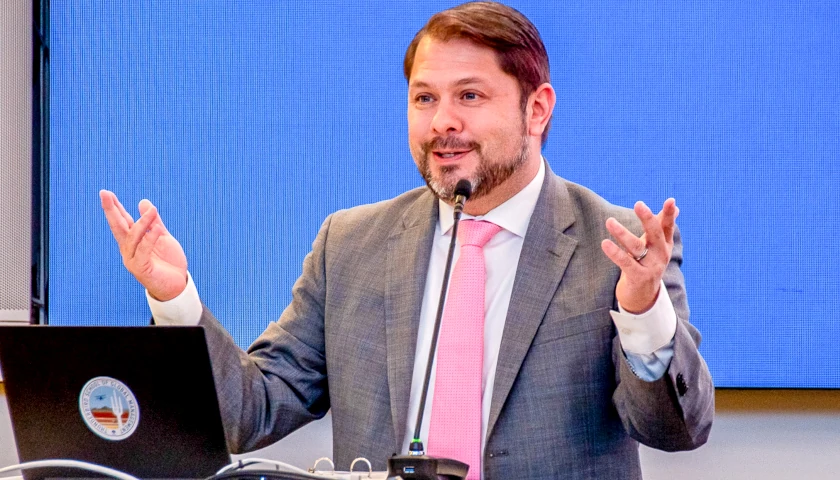by Anthony Hennen
Treating drug addiction is two-fold: one part is law enforcement reducing the supply and another is getting addicts the help they need to recover.
Such is what legislators heard during a House Republican Policy Committee on Thursday as Pennsylvania continues to deal with an opioid crisis that outpaces the rest of the country.
“Every two hours in the commonwealth of Pennsylvania, we lose a life to an overdose. It’s incredible,” said Rep. Josh Kail, R-Beaver.
More than 5,400 Pennsylvanians died from a drug overdose in 2021, fourth in the nation. The attorney general has called it the state’s No. 1 public health and public safety crisis and county officials routinely call reducing overdose deaths their top priority.
Yet, more education remains ahead.
“There’s a fundamental lack of understanding that drug addiction permeates every demographic and negatively impacts every part of our society,” Lawrence County District Attorney Joshua Lamancusa said.
Law enforcement in the county isn’t only arresting dealers and removing supply.
He noted that Lawrence County has a re-entry program to help convicted felons get full-time jobs and provide for their families after leaving jail, and praised the county’s drug task force. The task force, which combines local, state, and federal workers and resources, is “the most effective thing we’ve done,” Lamancusa said.
But policing efforts can only go so far in reducing drug use and overdoses.
“This is not a situation that can be solved by the police,” Lamancusa said. “It would not matter if you gave me 100 police officers — I would not be able to have that moment where I stand on the battleship and say, ‘I won.’”
Police can diminish, but not eliminate, the drug supply, he said.
“We cannot and will not be able to arrest our way out of this nightmare — we must seek to diminish demand and allocate resources to help rehabilitate those suffering from addiction,” Lamancusa said.
Pennsylvanians in recovery told lawmakers that more education and funds need to go to support people struggling with drugs.
Vaughn Crisci, an advocate for addiction recovery in Lawrence County, spoke of his son’s overdose death and his daughter’s nine-year recovery.
“People stuck in addiction wish they had a way out,” Crisci said. “We need more support for people in active addiction and people in recovery. Your help is crucial in this. Funding needs to be made available — it has to be made available to people in active addiction and in recovery.”
He read out testimony from his daughter, Colleen.
“There’s a stigma that us addicts became addicted because we grew up in bad homes, bad neighborhoods with no morals — but addiction does not discriminate,” Colleen Crisci wrote. “Addiction is cunning, baffling, powerful. We lose ourselves, our families.”
She warned that there’s not enough infrastructure in place for people to achieve recovery.
“We need more programs to help us on our feet,” Crisci wrote. “We do not have a female halfway house in this area, only (for) men. Recovery is lacking greatly for females here in New Castle … People are homeless with nowhere to go, no food to eat. The stigma needs to end.”
Rural parts of the commonwealth tend to get overshadowed by places like Kensington in Philadelphia. But research from the Center for Rural Pennsylvania showed that overdose victims in rural Pennsylvania are less likely to receive the overdose-reversal drug Naloxone than in urban Pennsylvania. Recovery centers and health care facilities also tend to be in urban and rural parts of the state.
She also offered her experience as proof that recovery is possible.
“‘Once an addict, always an addict’ is false,” Crisci wrote. “I got clean September 16, 2015 after going on a suicide mission after losing my brother to an overdose. I had been using off and on for 25 years and just wanted to die. I was tired of the life that I was living and not being a mother to my son.”
Overdose deaths have increased dramatically. Though they have gone up almost continually since 1999, overdose deaths jumped from 52,000 nationally in 2015 to 107,000 in 2021.
“Back then, if you did drugs, you didn’t expect to die,” Vaughn Crisci said. “Today, you can count on it.”
Like other testifiers, he advocated for more drug-prevention programs in schools, preferably in junior high before students experiment with drugs.
“I cannot stress enough the importance of getting into our schools and educating our children, our young folks,” Crisci said. “We have to reach these kids when they’re younger.”
The extent of loss from overdose deaths is dramatic; one study by the American Public Health Association estimated that 125 million Americans — more than 40% of adults — have lost someone to an overdose. That includes a number of Pennsylvania state legislators, as noted in the closing comments.
“I lost a cousin from addiction about a year and a half ago,” said Marla Brown, R-New Castle. “Like so many others, we’re afraid of it. And we treat it — we just try to bury it in the sand…I promise that I’m going to continue to push forward anything possible to make a different for our community and our state.”
– – –
Anthony Hennen is a reporter for The Center Square news wire service, covering Pennsylvania, and co-host of Pennsylvania in Focus, a weekly podcast on America’s Talking Network. Previously, he worked for Philadelphia Weekly and the James G. Martin Center for Academic Renewal. He is managing editor of Expatalachians, a journalism project focused on the Appalachian region.





